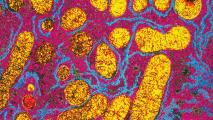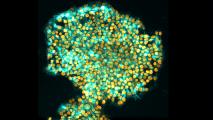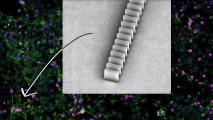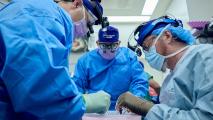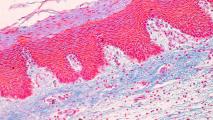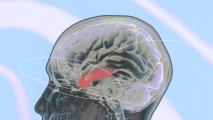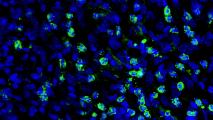
Biotech
Human history has been all but defined by death and disease, plague and pandemic. Advancements in 20th century medicine changed all of that. Now advancements in 21st century medicine promise to go even further. Could we bring about an end to disease? Reverse aging? Give hearing to the deaf and sight to the blind? The answer may be yes. And soon.
More
New obesity treatments could reshape the world
New obesity treatments, including GLP-1 agonists and gene therapies, could make it easier for people to lose weight and keep it off.
“5 stages of grief” is a myth — and knowing that helps us better cope with loss
The “monomyth” model of grieving offers closure and recovery, but in most traditional cultures the dead never leave the living.
Life’s stages are changing – we need new terms and new ideas to describe them
The arc of adult development has changed over the past several decades, in ways that our psychological theories are still catching up with.
One-shot gene therapy for liver disorder works in a small trial
A new gene therapy for the rare liver disorder Crigler-Najjar syndrome was highly effective in a small trial.
A Pink Floyd song was reconstructed from listeners’ brain waves
Training an AI to reconstruct a song from listeners’ brain activity revealed insights about the brain that could lead to better speech BCIs.
Breakthrough creates stem cells without any “memories”
A new method for creating induced pluripotent stem (iPS) cells includes a memory reset that puts the cells in a more embryonic-like state.
“Light sculpting” chip can rapidly test for thousands of diseases
Stanford researchers have developed a new type of molecular test that works without a cumbersome amplification step.
Scientists discover a gel that whitens teeth and kills 94% of bacteria
Scientists have found that light-activated oxidizing nanoparticles can whiten teeth without causing damage.
A pig kidney is still working in a person after 32 days
A gene-edited pig kidney has been functioning in a person for a record-breaking 32 days and still shows no signs of failure.
Can you manipulate your brain to stop your food cravings?
Research suggests it may be possible to “switch off” the pleasure we experience from eating certain foods, which could curb cravings.
Brain scans reveal the mystery of “hidden consciousness”
Newly identified patterns of injury linked to “hidden consciousness” could lead to better outcomes for people in comas or vegetative states.
Extreme treatment for alcoholism slashes drinking by 90% in monkeys
An in-development treatment for alcoholism dramatically reduced consumption in monkeys that previously drank heavily.
Mental illnesses affect brain structure, but in surprisingly different ways
A new brain mapping study identified commonalities in the brains of people with mental illnesses, and it could lead to better treatments.
“I’ve been here before”: DMT study explores a strange memory phenomenon
DMT can induce a sense of profound familiarity, making users feel as if they have entered an alternate reality they have visited before.
Brain stimulation helps people with Parkinson’s walk
A noninvasive form of brain stimulation developed by Japanese researchers improved the symptoms of Parkinsonian gait in a small trial.
Too much body fat isn’t the problem — malfunctioning body fat is
When fat cells are overloaded with excess nutrients, they become too big and don’t receive enough oxygen, causing them to die.
With “thanabots,” ChatGPT is making it possible to talk to the dead
ChatGPT is making it possible to digitally resurrect the dead in the form of thanabots: chatbots trained on data of the deceased.
Vaccine for common virus could prevent MS
An experimental vaccine designed to prevent an EBV infection might also prevent cancer and multiple sclerosis.
This unique human brain structure may have given us speech
Speech is unique to humans, yet most brain structures involved in speech are also present in Old World monkeys and other primates — except this one.
Existing heart drug may boost treatment for skin cancer
The FDA-approved heart medication ranolazine boosted the efficacy of a BRAF inhibitor in mouse models of melanoma, the deadliest skin cancer.
Get inspired with the most innovative stories shaping the world around us.
















